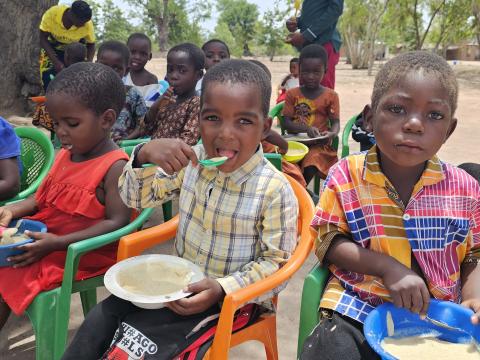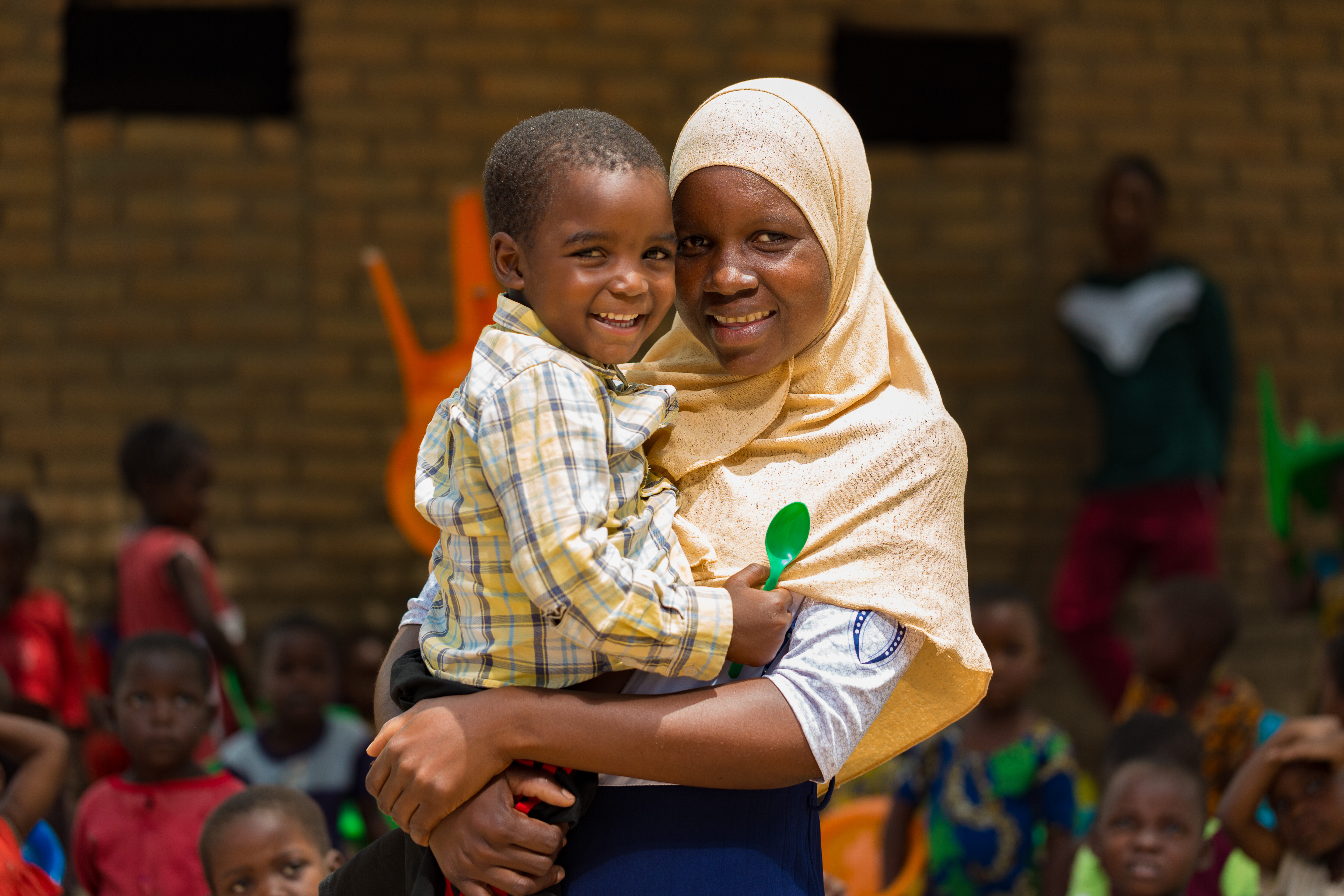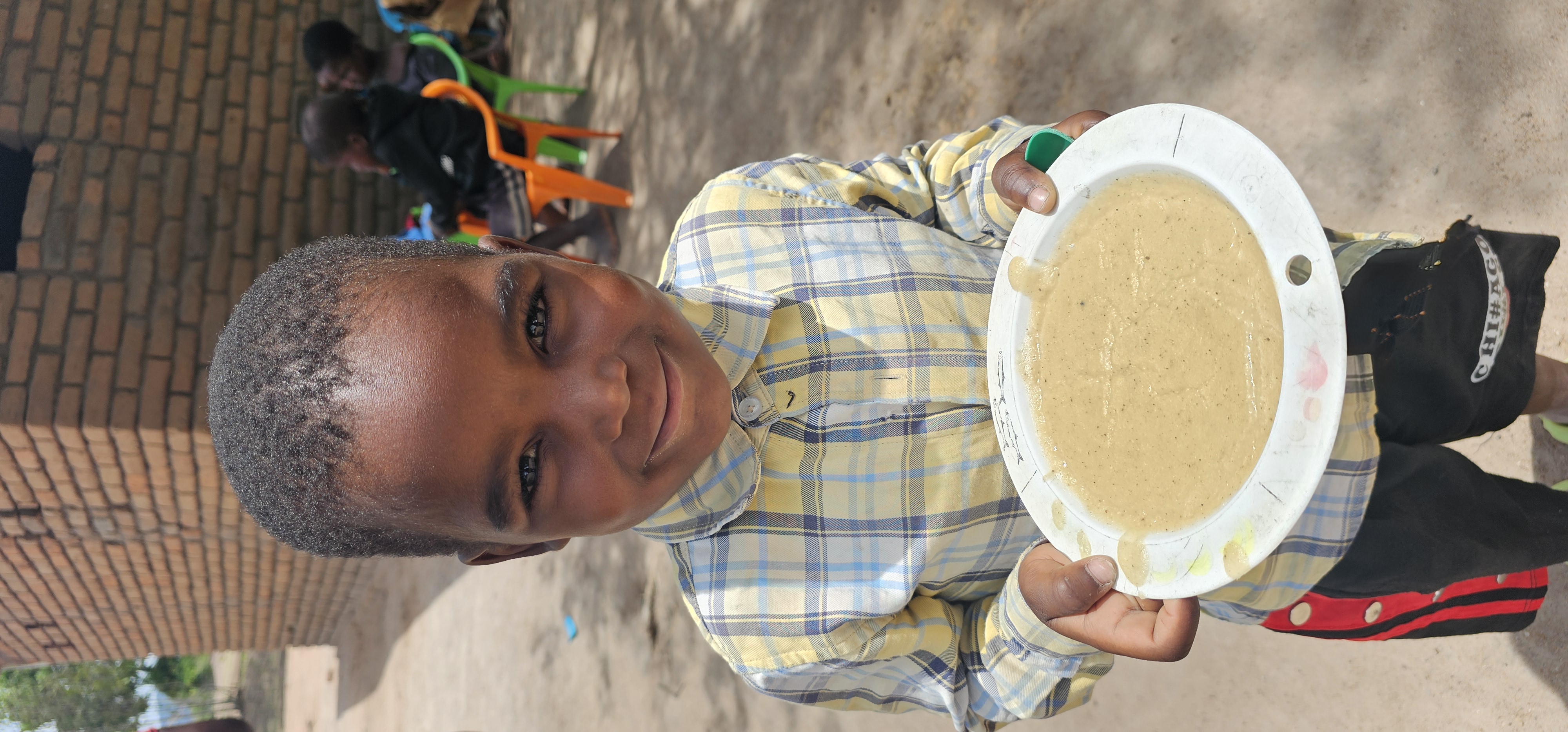El Niño Threatens Childhoods, But a Mother’s Mission Keeps Learning Alive in Malawi

In 2017, Rhoda Mapeto quit Form Four before sitting for national examinations to pave the way to her dream career of teaching.
However, this did not dash the aspiring teacher's belief in the power of education to transform the lives of children in poverty.
"Despite dropping out, I still believe every child has a right to learn and excel in life," she says.
Mapeto has been volunteering as a caregiver for 18 years since she founded Mfunda Community-Based Childcare Centre (CBCC) in Phalombe District, southern Malawi, to give children in her rural setting a solid start in life.
"Most children were idle and scarcely interested in learning, so I paired with my friend Patuma Nazombe to establish the centre where preschool children meet to play and learn basics because the first years are the foundation of their lives," says Mapeto.
The CBCC's enrolment has surged from 17 to 145 since its inception.
The caregivers have persuaded parents to contribute maize flour, potatoes, vegetables and cash to ensure every child gets a meal Monday to Friday.
"It was easy to convince parents and guardians to contribute to the nutrition and well-being of their children because the young ones who go through the CBCC do well in primary school. They are more active, more sociable and eager to learn than their peers who skip this step," she says.
However, the preschool meals associated with improved enrolment, daily attendance and child nutrition health stuttered to a halt in 2024 when El Nino-induced drought scorched crops across southern Africa.
The drought struck in February 2024, just over a year after Cyclone Freddy damaged crop fields totaling over 200,000 hectares across the disaster-prone region in March 2023.
"Many parents stopped contributing food and funds to the CBCC as they were struggling to feed their families amid rising grain prices," Mapeto says.
On 30 October 2024, World Vision Malawi delivered nutritious flour at Mfunda CBCC.
Mapeto says the support was timely as attendance was falling due to hunger.
"World Vision support helped our children to continue getting nutritious porridge when they need it most. Over a quarter had stopped coming and the present few were walking home before 11 am when they knocked off," she says.
Malawi experiences spiking hunger from October to April when many farmers harvest their crops.
However, the country appealed for international support to overcome a protracted lean season due to the El Nino weather shock. The Malawi Vulnerability Assessment Committee reports that 5.7 million people require urgent food aid.
These include children who skip early childhood development sessions at Mfunda CBCC due to hunger-related uncertainties.
Femia Chikaya's son, four-year-old Farook, joined the CBCC at age two.
The mother of three says the preschool sessions have triggered the boy's interest in learning, sociable character, respect for peers and elders and the potential to excel in primary school.
"I happily contributed food and cash because the CBCC is giving my son a firm foundation to excel later in my life. I thank World Vision for coming to our rescue when many parents were struggling to feed their families," she says.
Chikaya says the meals do not only help children learn and play energetically but also avert malnutrition.
"Farook is active and healthy. He loves to play with his peers and drumming basins and buckets. However, he suddenly became gloomy in September 2024 when we could only afford one meal a day, mostly supper so he could afford some sleep," she explains.
Due to drought, her family harvested a basketful from a one-acre maize field that previously produced 10 bags every rainy season.

She reckons irrigation would help reduce chronic hunger fueled by climate change.
"We used to plant in October or November, but we can no longer tell when the first rain will fall. The skies keep us guessing until January. Those who rush to plant often lose their costly seed and fertilizer to dry spells. With irrigation, we won't have to worry about erratic rains," she reckons.
People surrounding Mfunda CBCC have identified a communal field and contributed various seeds to produce enough food for the children.
WVM Director of Advocacy and Communications, Charles Gwengwe says drought, coupled with the late onset of the rainy season, has stretched the resilience of the community where it takes a whole village to raise a child.
World Vision is supporting CBCCs feeding programs, irrigation schemes and high-yielding farming techniques as part of its campaign to ensure every child gets enough nourishing food to thrive.
"While a few children who come to the CBCC get food Monday to Friday, the majority of their peers are starving. We can change the situation by supporting irrigation projects and food aid, but they need equipment and seeds to harvest enough food. Investing in livestock and small businesses can also enhance their income and food security." Says Gwengwe.